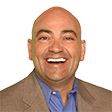Funding 40 Years of Retirement
If you live to 100, can you avoid outliving your money?

Profit and prosper with the best of Kiplinger's advice on investing, taxes, retirement, personal finance and much more. Delivered daily. Enter your email in the box and click Sign Me Up.
You are now subscribed
Your newsletter sign-up was successful
Want to add more newsletters?

Delivered daily
Kiplinger Today
Profit and prosper with the best of Kiplinger's advice on investing, taxes, retirement, personal finance and much more delivered daily. Smart money moves start here.

Sent five days a week
Kiplinger A Step Ahead
Get practical help to make better financial decisions in your everyday life, from spending to savings on top deals.

Delivered daily
Kiplinger Closing Bell
Get today's biggest financial and investing headlines delivered to your inbox every day the U.S. stock market is open.

Sent twice a week
Kiplinger Adviser Intel
Financial pros across the country share best practices and fresh tactics to preserve and grow your wealth.

Delivered weekly
Kiplinger Tax Tips
Trim your federal and state tax bills with practical tax-planning and tax-cutting strategies.

Sent twice a week
Kiplinger Retirement Tips
Your twice-a-week guide to planning and enjoying a financially secure and richly rewarding retirement

Sent bimonthly.
Kiplinger Adviser Angle
Insights for advisers, wealth managers and other financial professionals.

Sent twice a week
Kiplinger Investing Weekly
Your twice-a-week roundup of promising stocks, funds, companies and industries you should consider, ones you should avoid, and why.

Sent weekly for six weeks
Kiplinger Invest for Retirement
Your step-by-step six-part series on how to invest for retirement, from devising a successful strategy to exactly which investments to choose.
Will you live to 100? Your odds of becoming a centenarian may be improving. Earlier this year, the Centers for Disease Control reported that the population of Americans aged 100 or older rose 44% between 2000 and 2014. The Pew Research Center says that the world had more than four times as many centenarians in 2015 as it did in 1990.
If you do live to 100, will your money last as long as you do? These financial steps may help you maintain your retirement savings and income.
Keep investing in equities. Standard & Poor's 500-stock index does not automatically gain 10% or more each year, but it certainly has the potential to do so. As the benchmark interest rate is still well below 1%, fixed-rate investments are not producing anything close to double-digit returns. Some fixed-rate vehicles are even failing to keep up with the current inflation rate (about 1.5%). Turning away from equity investments in retirement may seriously hinder the growth of your savings and your level of income. What’s the right mix? Some research has shown that a portfolio constructed of between 50% and 75% in equities, coupled with a reasonable withdrawal rate, gives your portfolio a solid chance of success.
From just $107.88 $24.99 for Kiplinger Personal Finance
Become a smarter, better informed investor. Subscribe from just $107.88 $24.99, plus get up to 4 Special Issues

Sign up for Kiplinger’s Free Newsletters
Profit and prosper with the best of expert advice on investing, taxes, retirement, personal finance and more - straight to your e-mail.
Profit and prosper with the best of expert advice - straight to your e-mail.
Arrange some kind of pension-like income. If you can retire with a pension, great; if not, you may want other income streams besides Social Security and distributions from investment accounts. Renting out some property may provide it; although, the cost of third-party management can cut into your revenue. Dividends can function like a passive income stream, albeit a highly variable one. An annuity, of course, is built precisely for this purpose and annuitizing (arranging for a guaranteed stream of income) a portion of your investable assets is absolutely worth considering and will make great sense in the right circumstances.
Hold off filing for Social Security. If you are in reasonably good health and think you may live into your 90s or beyond then retiring later and claiming Social Security later can be a wise decision. If you wait to claim your benefits at full retirement age (which ranges from 66 to 67, depending on your birthdate), you will have fewer years of retirement to fund than if you left work at 62 and claimed benefits immediately. By continuing to work, you are also allowing your retirement savings a few more years to potentially grow – this might be the wisest step of all.
Funding 35 or 40 years of retirement will be a major financial challenge. The earlier you plan and invest to meet that challenge, the better.
Greg O'Donnell's mission over the course of three decades has been to guide people to pursue and maintain a healthy financial life plan that accomplishes their goals.
Investment advice offered through O’Donnell Financial Services, LLC, a registered investment advisor. Securities offered through Independent Financial Group, LLC member FINRA/SIPC. Advisory assets may be custodied at TD Ameritrade. Insurance offered by Gregory C. O’Donnell, California Insurance #0B87978. Mortgage services are provided through American Pacific Mortgage Corporation licensed through the California Bureau of Real Estate #01215943 NMLS #1850. Gregory C. O’Donnell licensed by the California Bureau of Real Estate #00971579, NMLS #298004, not all applicants will qualify, rates subject to change. Know before you owe. Insurance offered by Gregory C. O’Donnell, California Insurance #0B87978. O’Donnell Financial Group, Inc. and O’Donnell Financial Services, LLC are not affiliated with Independent Financial Group, TD Ameritrade or American Pacific Mortgage Corporation.
This material was prepared by MarketingPro, Inc., and does not necessarily represent the views of the presenting party, nor their affiliates. This information has been derived from sources believed to be accurate. Please note - investing involves risk, and past performance is no guarantee of future results. The publisher is not engaged in rendering legal, accounting or other professional services. If assistance is needed, the reader is advised to engage the services of a competent professional. This information should not be construed as investment, tax or legal advice and may not be relied on for the purpose of avoiding any Federal tax penalty. This is neither a solicitation nor recommendation to purchase or sell any investment or insurance product or service, and should not be relied upon as such. All indices are unmanaged and are not illustrative of any particular investment.
Profit and prosper with the best of Kiplinger's advice on investing, taxes, retirement, personal finance and much more. Delivered daily. Enter your email in the box and click Sign Me Up.

Greg O'Donnell is the CEO and founder of O'Donnell Financial Group (www.ODonnellFinancialGroup.com). His mission over the course of three decades has been to guide people to pursue and maintain a healthy financial life plan that accomplishes their goals.
-
 Over 65? Here's What the New $6K Senior Bonus Deduction Means for Medicare IRMAA
Over 65? Here's What the New $6K Senior Bonus Deduction Means for Medicare IRMAATax Breaks A new deduction for people over age 65 has some thinking about Medicare premiums and MAGI strategy.
-
 U.S. Congress to End Emergency Tax Bill Over $6,000 Senior Deduction and Tip, Overtime Tax Breaks in D.C.
U.S. Congress to End Emergency Tax Bill Over $6,000 Senior Deduction and Tip, Overtime Tax Breaks in D.C.Tax Law Here's how taxpayers can amend their already-filed income tax returns amid a potentially looming legal battle on Capitol Hill.
-
 5 Investing Rules You Can Steal From Millennials
5 Investing Rules You Can Steal From MillennialsMillennials are reshaping the investing landscape. See how the tech-savvy generation is approaching capital markets – and the strategies you can take from them.
-
 When Estate Plans Don't Include Tax Plans, All Bets Are Off: 2 Financial Advisers Explain Why
When Estate Plans Don't Include Tax Plans, All Bets Are Off: 2 Financial Advisers Explain WhyEstate plans aren't as effective as they can be if tax plans are considered separately. Here's what you stand to gain when the two strategies are aligned.
-
 Counting on Real Estate to Fund Your Retirement? Avoid These 3 Costly Mistakes
Counting on Real Estate to Fund Your Retirement? Avoid These 3 Costly MistakesThe keys to successful real estate planning for retirees: Stop thinking of property income as a reliable paycheck, start planning for tax consequences and structure your assets early to maintain flexibility.
-
 I'm a Financial Planner: These Small Money Habits Stick (and Now Is the Perfect Time to Adopt Them)
I'm a Financial Planner: These Small Money Habits Stick (and Now Is the Perfect Time to Adopt Them)February gets a bad rap for being the month when resolutions fade — in fact, it's the perfect time to reset and focus on small changes that actually pay off.
-
 Social Security Break-Even Math Is Helpful, But Don't Let It Dictate When You'll File
Social Security Break-Even Math Is Helpful, But Don't Let It Dictate When You'll FileYour Social Security break-even age tells you how long you'd need to live for delaying to pay off, but shouldn't be the sole basis for deciding when to claim.
-
 I'm a Wealth Adviser Obsessed With Mahjong: Here Are 8 Ways It Can Teach Us How to Manage Our Money
I'm a Wealth Adviser Obsessed With Mahjong: Here Are 8 Ways It Can Teach Us How to Manage Our MoneyThis increasingly popular Chinese game can teach us not only how to help manage our money but also how important it is to connect with other people.
-
 Global Uncertainty Has Investors Running Scared: This Is How Advisers Can Reassure Them
Global Uncertainty Has Investors Running Scared: This Is How Advisers Can Reassure ThemHow can advisers reassure clients nervous about their plans in an increasingly complex and rapidly changing world? This conversational framework provides the key.
-
 The 8 Stages of Retirement: An Expert Guide to Confidence, Flexibility and Fulfillment, From a Financial Planner
The 8 Stages of Retirement: An Expert Guide to Confidence, Flexibility and Fulfillment, From a Financial PlannerRetirement planning is less about hitting a "magic number" and more about an intentional journey — from understanding your relationship with money to preparing for your final legacy.
-
 Should You Jump on the Roth Conversion Bandwagon? A Financial Adviser Weighs In
Should You Jump on the Roth Conversion Bandwagon? A Financial Adviser Weighs InRoth conversions are all the rage, but what works well for one household can cause financial strain for another. This is what you should consider before moving ahead.